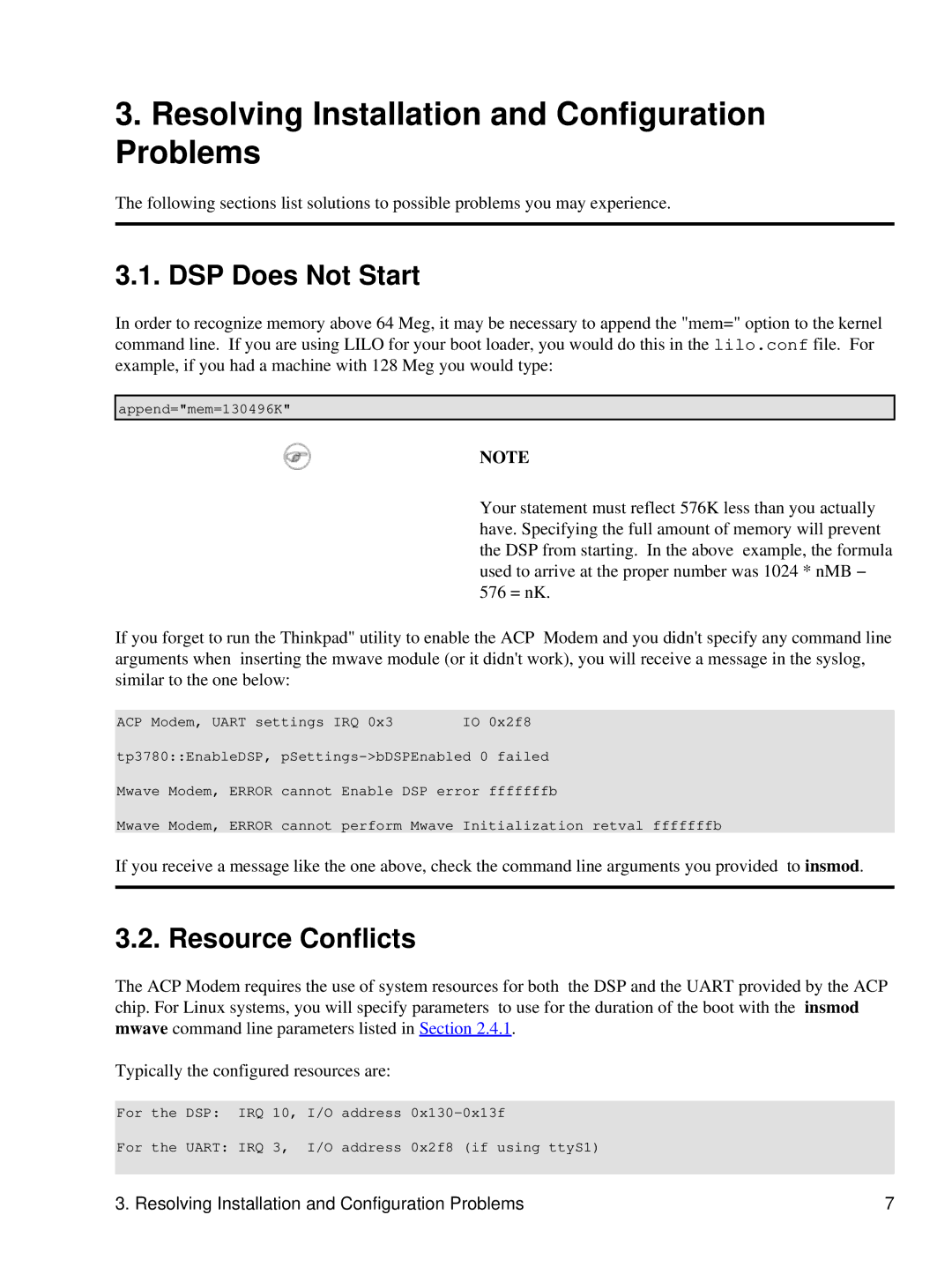
3.Resolving Installation and Configuration Problems
The following sections list solutions to possible problems you may experience.
3.1. DSP Does Not Start
In order to recognize memory above 64 Meg, it may be necessary to append the "mem=" option to the kernel command line. If you are using LILO for your boot loader, you would do this in the lilo.conf file. For example, if you had a machine with 128 Meg you would type:
append="mem=130496K"
NOTE
Your statement must reflect 576K less than you actually have. Specifying the full amount of memory will prevent the DSP from starting. In the above example, the formula used to arrive at the proper number was 1024 * nMB − 576 = nK.
If you forget to run the Thinkpad" utility to enable the ACP Modem and you didn't specify any command line arguments when inserting the mwave module (or it didn't work), you will receive a message in the syslog, similar to the one below:
ACP Modem, UART settings IRQ 0x3 | IO | 0x2f8 | ||
tp3780::EnableDSP, pSettings−>bDSPEnabled 0 failed | ||||
Mwave | Modem, ERROR | cannot Enable DSP error | fffffffb | |
Mwave | Modem, ERROR | cannot perform Mwave Initialization retval fffffffb | ||
If you receive a message like the one above, check the command line arguments you provided to insmod.
3.2. Resource Conflicts
The ACP Modem requires the use of system resources for both the DSP and the UART provided by the ACP chip. For Linux systems, you will specify parameters to use for the duration of the boot with the insmod mwave command line parameters listed in Section 2.4.1.
Typically the configured resources are:
For the DSP: IRQ 10, I/O address 0x130−0x13f
For the UART: IRQ 3, I/O address 0x2f8 (if using ttyS1)
3. Resolving Installation and Configuration Problems | 7 |
